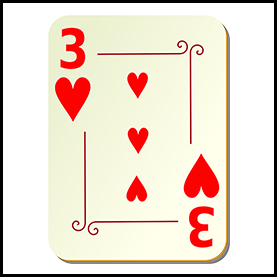 So much has been written about each of the 9 enneatypes (by me as well as many others), and there is always more to be learned. My biggest teachers are people of these types themselves, sharing their own stories and journeys, discovering their own inner process and saying it out loud.
So much has been written about each of the 9 enneatypes (by me as well as many others), and there is always more to be learned. My biggest teachers are people of these types themselves, sharing their own stories and journeys, discovering their own inner process and saying it out loud.
Although I have had many, many Threes in my life and in a variety or roles and relationships, my biggest teacher as a Three has been my son, Tres. At 24, he has been going through the Three deep journey to find the true self for the last 4 years and with great intensity. What set it off was a number of factors: (1) getting into a great university, yet not enjoying much of it because its image and the actuality were so different; (2) getting really sick for multiple months with a series of issues that were near impossible to diagnose, much less treat; (3) two very close friends having bad things happen to him (one was murdered; the other had a mental breakdown at our house, a place he felt safe); and (4) a breakup with a long term girlfriend, a relationship that lasted too long and had a very messy breakup. And all this happened within a 4-month time period, too much for the average 20 year-old to handle. He’s doing great now, with a journey as challenging as it was profound.
Here are just some of the things he learned, so I learned them, too. In addition, these learnings have really helped me assist other Threes get clearer on their process and their development.
Learning 1 | Threes have a very difficult time figuring out what they really want deep inside, what avenues they want to pursue, and what excites them and for very specific reasons
The reason for this difficulty is that Threes have spent their whole life following what they think they should want, often not being aware that it isn’t what they really want. The distinction is important because pursuing what they think they should want often brings them achievement, success, respect from others and therefore self-respect, and it often brings status within their social context. Because all of the above is what Threes pursue and makes them feel pretty great when they feel this way, discerning between this feeling of quasi-elation and the real joy that comes from following one’s interests and dreams can be difficult. It is always a challenge to compare the experience of two things when you have only experienced one of them.
Learning 2 | Threes have a very strong inner structure of “shoulds” and “should nots,” then fall into guilt very quickly when they are not living up to their “should” and or somehow fallen into one of their “should nots.”
These “shoulds” and “should nots” are not of the same texture or quality as the right-wrong of enneatype Ones, although both serve a similar function to keep the type structure in place. In Threes, the “shoulds” and “should nots” are not as ever-present as in Ones, but they are always in the background, capable of looming large and overwhelming Threes when Threes do not live up to their idealized self-image. In Threes, these thoughts of having violated a “should” or “should nots” come accompanied with mega doses of guilt that when left unprocessed, cause deep concern, anxiety and even bouts of depression. Not living up to this idealized self is not simply experienced as self-disappointment because there is also the audience factor, something not seen or felt so strongly in Ones.
Learning 3 | Threes often need to have great insights – even their own – and development tips for moving deeper and forward repeated multiple times for it to register
Threes pride themselves on being fast learners, excellent problem solvers, and knowers of how to do things. However, when they get into unfamiliar territory, and much of their deep inner journey is that, at least in the beginning, unknown. They also like to know, at least initially, exactly how to do something, even a development process. The unfamiliar can be hard and take some time – no quick fixes here. Threes then create a new set of “shoulds” and “should nots” to deal with the uncertainty of the unknown, reduce their initial anxiety, and to keep themselves on the path. Paradoxically, the creation of these “shoulds” and “should nots” creates more anxiety – something else to live up to.
Thoughts from a Three (my son!) on how to work on the issues above
Breathe
Get back in your body
Cultivate calmness
Talk things out (feelings and perspectives) with people you trust
Make sure you stay physically healthy (eating, exercise, and more)
Be patient; this is hard but with patience, many issues get resolved on their own

Comments are closed.